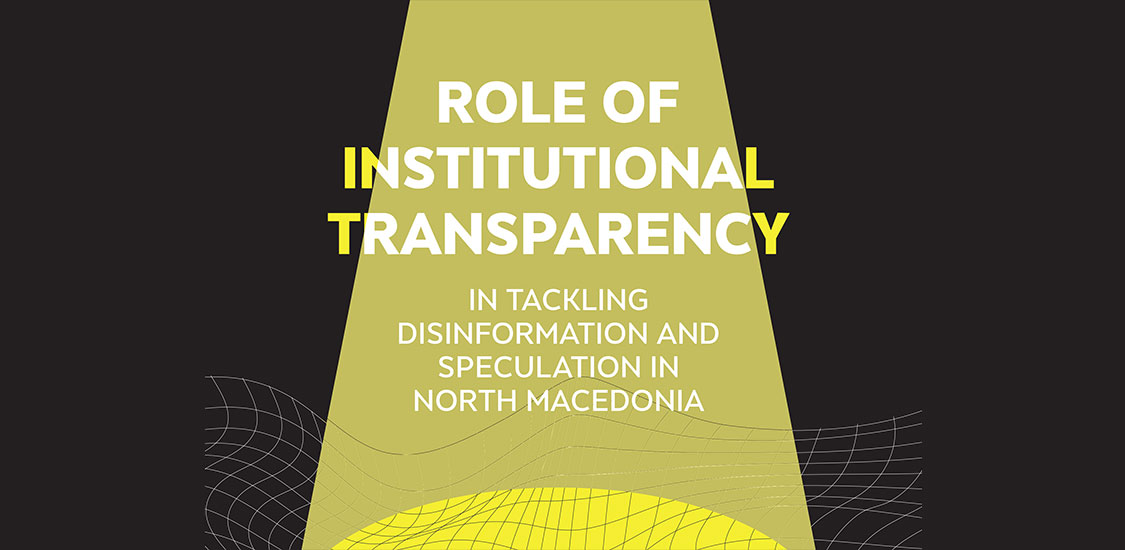
It’s time to take transparency seriously
In the era of rapid technological advancements and digitalization, disinformation has emerged as a global threat with far-reaching political consequences. The COVID-19 pandemic and the war in Ukraine have exposed the dangers of disinformation and its potential to undermine trust in institutions and spread false information with serious consequences. The impact of disinformation is felt in democratic societies worldwide, and its influence is spreading rapidly.
The Institute of Communication Studies (ICS) conducted the research study “The Role of Institutional Transparency in Tackling Disinformation and Speculation in North Macedonia” with the aim of exploring the relationship between open and accountable governments and the spread of disinformation that undermines trust in state institutions. The study focused on two key entities in society – central government institutions and media – to identify if and how much the transparency of institutions can contribute to countering the spread of disinformation.
The research findings highlight numerous challenges, including normative-legal, organizational, and technological-technical issues. The absence of institutional transparency means curtailing citizens’ right to access information, marginalizing them from decision-making processes and policy-making. These tendencies not only disable citizens from following government decision-making in an informed manner but also increase the risk of disinformation.
The European Union’s comprehensive approach to tackling disinformation, along with its general norms and documents on institutional transparency and fighting corruption, provide valuable guidance for overcoming these challenges.
The media, institutions, civil society organizations, and citizens all have a role to play in reducing the influence of disinformation. When regulating disinformation, it is crucial to be aware of the risks, particularly censorship and restricting freedom of speech. Transparency should be considered a tool for tackling disinformation, as it aids in creating a more open, accountable, and trustworthy information environment.
The ICS study provides useful insights for policymakers, media professionals, and civil society actors working to improve institutions’ transparency and combat disinformation. By understanding the phenomenon of disinformation and its influence, we can develop efficient and coordinated policies and measures to prevent its spread. To protect democratic societies from the dangers of disinformation, we must act proactively and collaboratively. It is time to take transparency seriously and prioritize it in our efforts to tackle disinformation effectively.
The study is prepared within the “Use Facts” project, which is implemented with the support of the British Embassy in Skopje.

